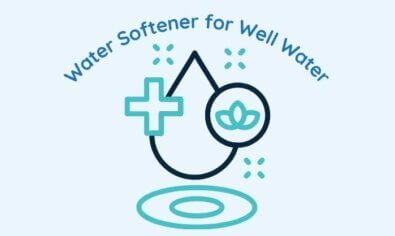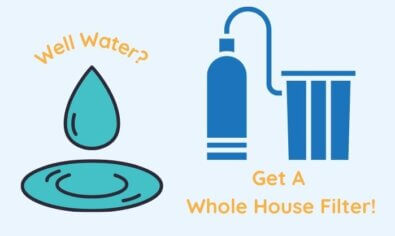Why are Lead and Chromium-6 Still in Chicago Water?

Chicagoland Residents Should Beware of Toxic Elements in Their Water
Here on the Angel Water blog, we make it our mission to keep you well informed about the state of your water. An unfortunate result of this goal is we often must give you bad news. And today’s post is no exception.
In the past, you may have read articles from us about the harmful contaminants lead and chromium-6. Both elements have become infamous over the years, as lead contamination caused Flint, Michigan’s water crisis, and chromium-6 pollution was the central conflict of the film Erin Brockovich. So, the general public is familiar with how harmful these elements can be. However, many people don’t realize that they are still a problem today.
But how can this be? We live in a time when technology and medicine are making incredible strides every day. So, why are we still letting something as basic as our water poison us?
In this article, we will explain why lead and chromium-6 are still finding their way into your water. Then we will give you some helpful tips for defending yourself against these harmful contaminants.
Where Do Lead and Chromium-6 Come From?
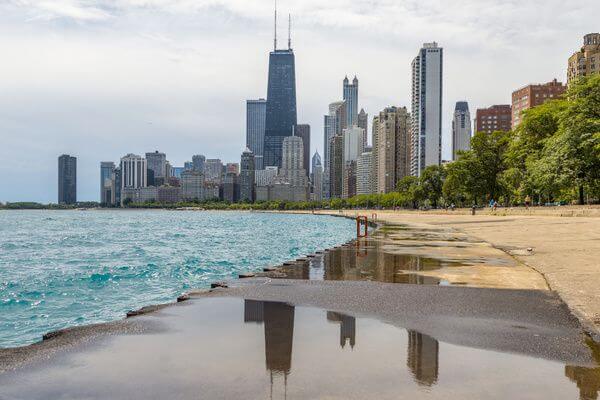
Neither lead nor chromium-6 is found naturally in water. Instead, water collects the elements as it flows through them on the way to your home.
So, why don’t we eliminate the sources of these contaminants? Good question.
The unfortunate truth is it is challenging to get rid these elements since they are so ingrained in our society. Lead, for instance, still makes up a vast majority of the plumbing in the Chicagoland region. The reason the city has so many lead pipes is it used to make all its service lines out of lead until Congress banned the practice in 1986.
Chromium-6 is also a fixture in Chicago, but for a different reason. Companies like U.S. Steel use it as a coolant in their industrial processes. This practice leads to a lot of waste, and regrettably, in recent years, much of that waste has wound up in Lake Michigan. While a recent lawsuit shows that people are holding these companies responsible for this pollution, it doesn’t change the fact that chromium-6 contamination is still prevalent in our region.
How Harmful are These Elements?
Undoubtedly, lead and chromium-6 have both become fixtures in Chicago water. But some people may wonder if this is such a big deal. After all, don’t we have bigger things to worry about in our city than some random elements in the drinking water?
To answer this question, let’s look at the facts:
The Effects of Lead Poisoning
We’ll start with lead contamination. A Chicago Tribune study earlier this year found that nearly 70% of Chicago homes have toxic lead in their water. This finding would not be cause for concern if the lead levels were low. However, many of the houses had lead concentrations above the limit recommended by the US Food and Drug Administration.
Therefore, the lead concentration is significant enough to pose a health risk. And here are just a few of the many health problems lead can cause over time:
- Brain injury or loss of IQ in children
- High blood pressure
- Heart disease
- Kidney disease
- Reduced fertility
As you can see, this harmful element is not something we want contaminating our water. But what about chromium-6?
The Effects of Ingesting Too Much Chromium-6
Studies have shown that Chicago water has some of the highest levels of chromium-6 in the country. Furthermore, the sheer amount of the element in our water is much higher than the expert-recommended limit. As a result, the contaminated water poses a substantial health risk.
Here are some of the diseases associated with overexposure to chromium-6
- Cancer
- Respiratory disease
- Chronic bronchitis
- Dermatitis
- Cardiovascular disease
With so many potential health risks, it’s clear that Chicago needs to do something about these problems. Sadly, as we will see, the city’s efforts have been less than satisfactory.
What is Chicago Doing to Fix These Problems?
To be frank, Chicago doesn’t have a great history of dealing with water contamination. City officials have been downright dishonest in the past about how contaminated the water is.
Illinois Water Utilities have been reporting some gross contaminants!
Check out the concerning contamination that has been reported by public water utilities in Illinois!

Still, as studies have come out and public outcry has grown, the city has taken some steps to address the problems.
How the City has Fought Lead Pollution
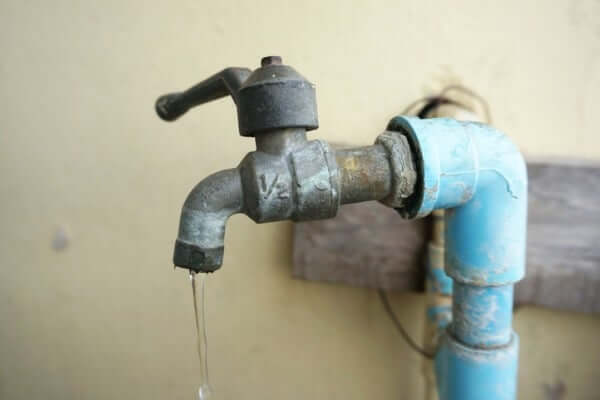
Chicago does not have a good track record of fighting against lead pollution in its water. In 2016 a report came out that revealed Mayor Rahm Emmanuel worsened the lead problem by rushing construction projects that damaged lead service lines. Furthermore, the city did not do enough to warn its citizens of the health risks the projects posed.
Since that time, the Emmanuel administration hasn’t done much to make up for the incident. Just recently it came out that the administration knowingly ignored tests that found lead contamination in one of every five Chicago homes.
Still, there is some hope for Chicago’s lead problem. The city’s aldermen have recently spoken out against the mayor and called for the removal of lead service lines. This rallying cry from the city’s politicians will hopefully lead to better things for Chicago’s future. Time will tell.
How the City has Fought Chromium-6 Contamination
There is also hope for the city when it comes to chromium-6. Although there is no official federal regulation for chromium-6 in water, the city has still expressed a willingness to adhere to recommended EPA guidelines.
Currently, the city performs quarterly tests for the element and makes the results available to the public. Officials have also agreed to comply with any new federal regulations that are released. Until then, the city will keep monitoring the chromium-6 in its water on a voluntary basis.
How Can Chicago Residents Protect Their Health?
While we appreciate Chicago’s desire to protect its citizens from these harmful pollutants, it’s still not enough. The fact remains that a Chicagoland resident’s best defense against these pollutants lies in his or her home.
By using water smartly and purchasing water treatment equipment, Chicagoans can fend off the harmful effects of lead and chromium-6. Here are some tips for protecting yourself against these harmful contaminants:
How to Defend Yourself Against Lead
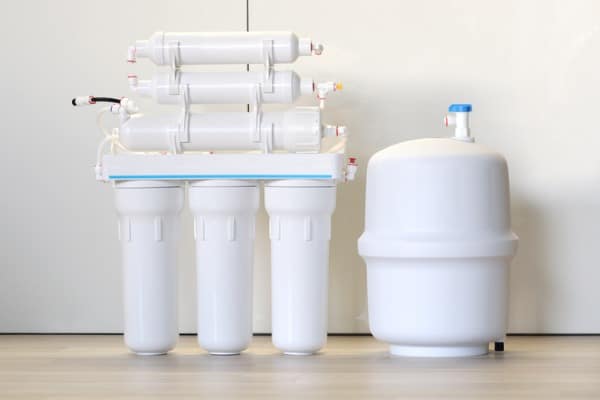
There are many steps you can take to keep your water lead-free. For starters, you can run your tap water cold for a few minutes before use. Doing this gives the water enough time to flush the lead from its system.
For more thorough protection, you should invest in a whole house water filtration system. An NSF-certified water filter will ensure your home’s water stays lead-free for the long haul. Filters can also protect you from other harmful elements, including chlorine, mercury, and fluoride.
How to Defend Yourself Against Chromium-6
Defense against chromium-6 also requires water treatment equipment. Particularly, you’re going to want to get a reverse osmosis drinking water system. This filter is the only type guaranteed to keep chromium-6 out. Plus, it also protects against lead and other contaminants, making it the perfect solution to all your clean water needs.
Who Will Help Me Defend My Water?
As you can see, lead and chromium-6 contamination are still significant issues in our region. The pollutants cause some severe diseases, and the city is not doing nearly enough to keep them out of our water. The best hope for Chicago residents is to invest in water treatment equipment for their homes. However, determining the right products to purchase can be difficult.
So, what is a concerned Chicagoan to do?
The good news is you have a water treatment ally in Angel Water. We are dedicated to helping Chicagoland residents find the right water treatment equipment for their situations. We have a wide selection of NSF-certified whole house water filters and reverse osmosis systems. And our licensed plumbers can install your systems the right way for the best results.
We want to help you live the healthy life you deserve. If you have questions or want to set up a free consultation, give us a call today at 847-382-7800. We’d be happy to help you out!
Interested in a Water Softener System for Your Home?
You don’t have to live with a dry, itchy scalp and brittle hair anymore! It would be our pleasure to help you find the right water softener to make your showers enjoyable again.
Please give us a call at (847) 382-7800 or visit our water softener page to learn more.

